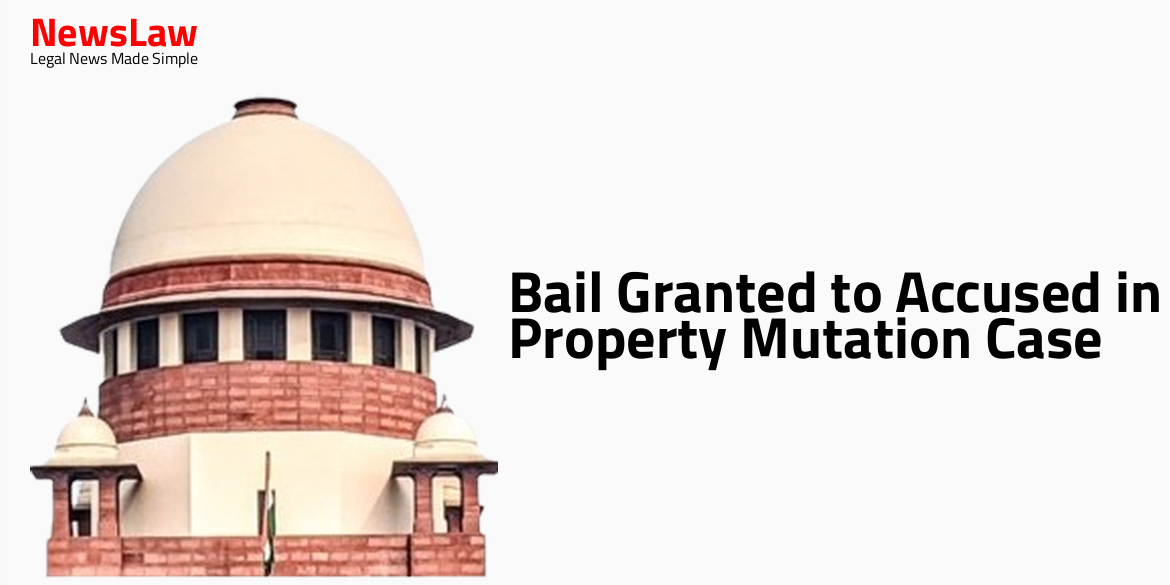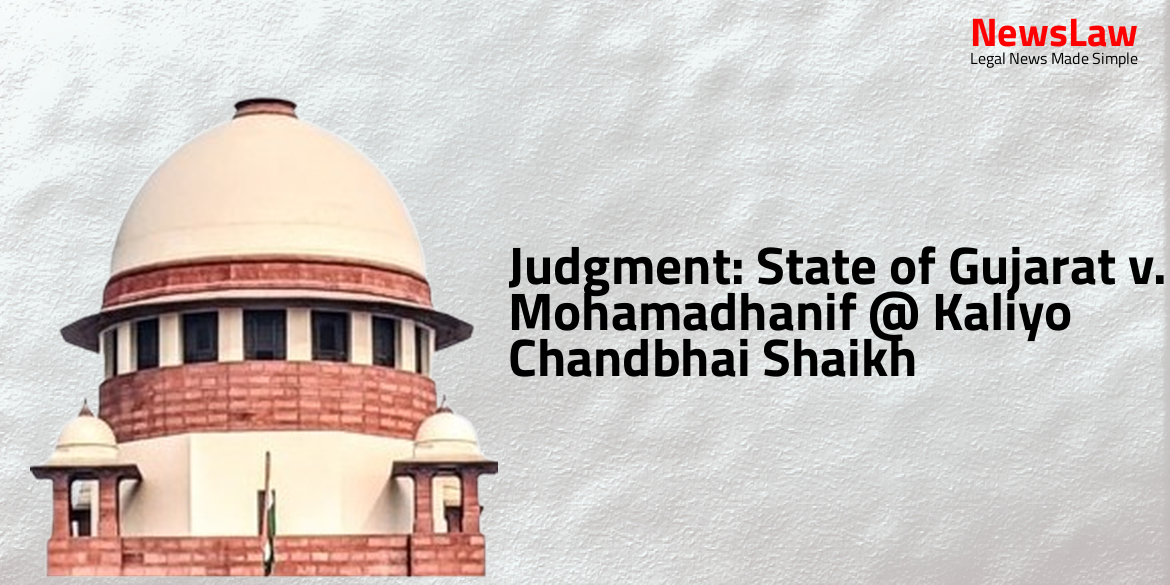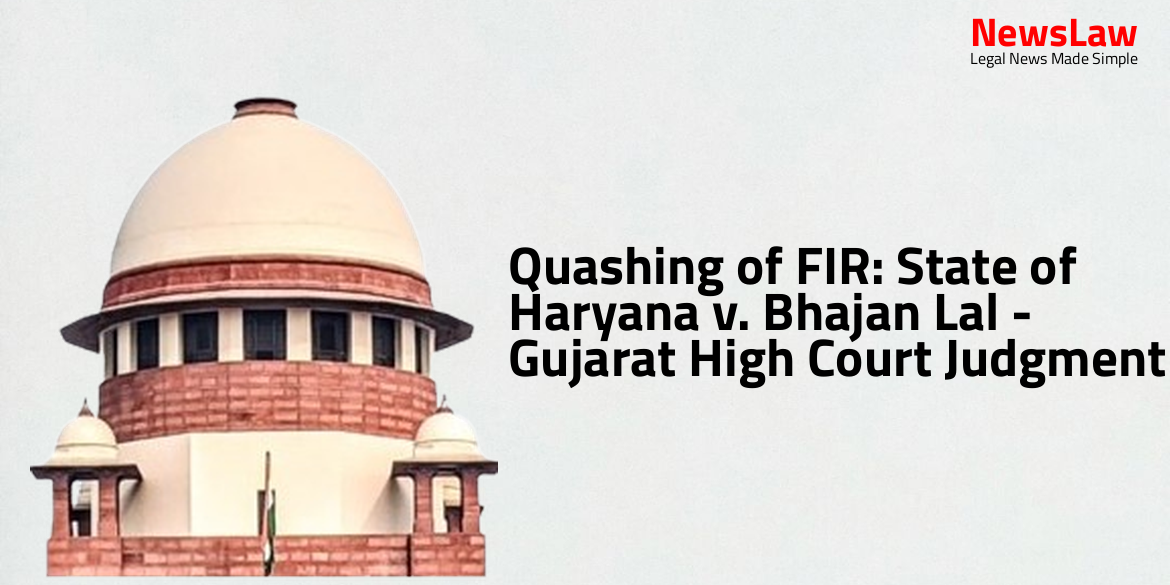In a significant ruling, the Gujarat High Court has upheld the trial court’s acquittal in the case of State v. [Opponent-Accused]. The court carefully analyzed the evidence presented during the trial and found no reason to interfere with the lower court’s judgment. The case involved charges under sections 498(A) and 302 of the IPC, with the appellant-State appealing against the acquittal of the opponent-accused. The court’s decision sheds light on the importance of considering all facts and material presented in a criminal case. Stay tuned for more insights on this legal development.
Facts
- The trial Court framed charges against the opponent-accused for offences under sections 498(A) and 302 of the IPC.
- The opponent-accused pleaded not guilty and opted for trial.
- Nine witnesses were examined by the prosecution along with documentary evidence to prove the charges.
- The trial Court questioned the opponent-accused under section 313 of the Code of Criminal Procedure regarding the incriminating circumstances.
- The deceased, Navuba, named the opponent-accused in her dying declaration as the perpetrator of the crime.
- The appellant-State appealed against the acquittal of the opponent-accused based on the evidence presented during the trial.
- The opponent-accused denied all incriminating circumstances, claiming innocence, and alleging a false case against her.
Arguments
- The trial Court made an error in acquitting the opponent-accused based on overall facts and circumstances of the case.
- The trial Court’s reliance on the delayed FIR being lodged after 11 hours of the alleged incident was considered an error.
Analysis
- Gandaji-PW-1 and Dr. Navinchandra Patel-PW-2, both independent witnesses, interacted with the deceased-Navuba soon after the incident, and were told by her that she accidentally caught fire while preparing tea.
- The evidence does not support the prosecution’s claim that the opponent-accused was present at the scene of the incident and set the deceased on fire.
- The trial court did not believe the testimonies of Vinod Patel-PW-8 and Ambalal Paramar-PW-9, as other witnesses indicated the opponent-accused was not present at the time of the incident.
- The IO, Nanjibhai Badiyabhai Kalasava-PW-7, also confirmed that the opponent-accused was not present when the incident occurred.
- The father of the deceased did not support the prosecution’s case, indicating further lack of evidence against the opponent-accused.
- The court considered all facts and material presented, concluding that the opponent-accused was not present at the house during the incident.
- Based on the above, the court found no reason to interfere with the trial court’s judgment and order.
- The High Court should give proper weight to the view of the Trial Court regarding the credibility of the witness and the presumption of innocence in favor of the accused.
- The right of the accused to the benefit of any doubt should be considered.
- The appellate courts should be slow in justifying a finding of fact arrived at by a Judge who saw the witness.
- If the main grounds for acquittal by the lower Court are reasonable and cannot be dislodged, the High Court should not disturb the order of acquittal.
- Unless the reasoning by the trial Court is found to be perverse, the acquittal cannot be overturned.
- High Court’s interference in an appeal against acquittal is circumscribed unless the trial Court’s view is not possible on the evidence.
- The scope of appeal under Section 378 of the Code of Criminal Procedure is considered while dismissing the present Criminal Appeal.
- The powers of the High Court in an appeal from acquittal are as extensive as in any appeal against conviction.
- In an acquittal appeal, if another view is possible, the appellate Court cannot substitute its own view unless the trial Court’s findings are perverse or demonstrably unsustainable.
Case Title: STATE OF GUJARAT Vs. ANTARBA W/O ABHUJI PRATAPJI VAGHELA
Case Number: R/CR.A/167/1998



